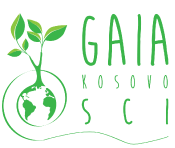Reviving Hemp Heritage in Kosovo and Serbia, is a small project implemented by GAIA Kosovo and the Volunteers’ Center of Vojvodina with the support of the European Heritage Hub.
The project is about documenting the traditional knowledge of growing hemp in Kosovo and Vojvodina (Northern Serbia) and promoting its potential in mitigating climate change, especially in the construction and agricultural sectors. The project includes a documentary production, this publication, a study visit to hemp growers in Vojvodina, a workshop and research, with the aim of extracting knowledge and wisdom from the past, for the future use of hemp production to mitigate climate change.
In the Balkans, industrial hemp has been cultivated for centuries. It is used for human and animal nutrition, for the production of textiles, ropes and in industry. Since the 1970s, hemp production has been declining and banned. Meanwhile, trends and legislation in the EU have changed in favor of hemp, which has influenced its slow return to the Balkans. Multi-ethnic Vojvodina was once the center of European hemp production, and it was grown all over Kosovo, mostly along the Binačka Morava. For many families in Kosovo Pomoravlje, the production of hemp ropes was the main source of income. In Kulpin (Vojvodina), the agricultural museum has an exhibition on the history of hemp, which is particularly relevant to the Slovak minority. In Kosovo, only older residents remember how hemp was once grown and processed.
Today, hemp is making a huge difference in the construction industry, which is one of the main factors of climate change. The return of hemp from the past, its extraordinary potential for carbon storage (and other benefits for people and the planet) offers hope for the future.
This project deals with exactly that. By documenting the use of hemp in the past, we are laying the groundwork for understanding its importance, potential and role in the future.

“Thanks to the support of the European Heritage Hub pilot Project co-funded by the European Union and supported by the ALIPH Foundation”










